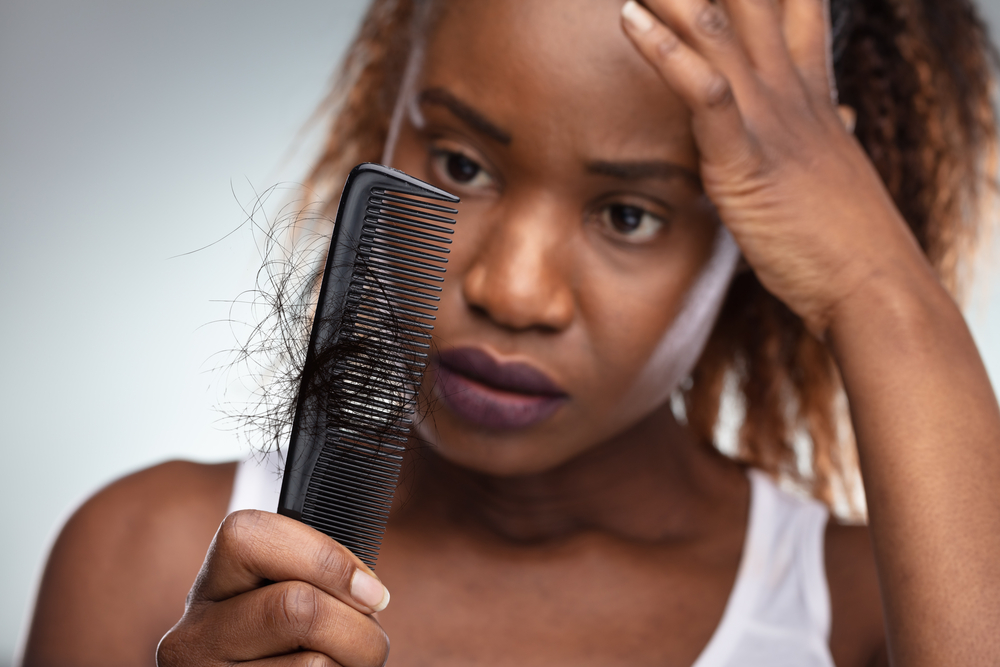Hair loss, a concern that affects millions globally, manifests differently in men and women. While it’s common knowledge that men often experience balding patterns, women’s hair loss remains a topic shrouded in mystery for many. This article delves into the heart of the matter, shedding light on the reasons behind these differences and offering insights based on firsthand experiences and expert knowledge.
Why Is Women’s Hair Loss Different From Men’s? At the core of understanding hair loss is recognizing the distinct patterns and causes between genders. Women’s hair loss is often more diffuse, spreading across the scalp, while men’s hair loss typically follows specific patterns, like the receding hairline.
The Science Behind Hair Growth and Loss
- The Hair Growth Cycle: Every strand of hair goes through a growth cycle comprising the anagen, catagen, and telogen phases. Disruptions in this cycle can lead to hair loss.
- Hormonal Differences: Women’s hair loss is often linked to hormonal changes, especially during events like pregnancy or menopause. Men, on the other hand, face hair loss due to the effects of dihydrotestosterone (DHT).
- Genetic Predisposition: Both men and women can inherit genes that make them susceptible to hair loss. However, the manifestation of these genes differs between genders.
External Factors Influencing Hair Loss
- Stress and Hair Loss: Chronic stress can lead to hair shedding in both men and women. However, women often report higher instances of stress-induced hair loss.
- Diet and Nutrition: A lack of essential nutrients can lead to hair thinning. Women, especially those with dietary restrictions, might experience hair loss due to deficiencies.
- Hair Care Practices: Women often engage in hair styling practices that can lead to hair breakage and loss. Overuse of heat tools, tight hairstyles, and chemical treatments can exacerbate hair loss.
Medical Conditions and Hair Loss
- Polycystic Ovary Syndrome (PCOS): A common condition in women, PCOS can lead to hair thinning due to hormonal imbalances.
- Alopecia Areata: An autoimmune disorder where the body attacks hair follicles, leading to hair loss. It affects both men and women but can manifest differently.
- Thyroid Disorders: Both hypothyroidism and hyperthyroidism can cause hair loss. Women are more prone to thyroid disorders, making them more susceptible to related hair loss.
Treatment Options for Women’s Hair Loss
- Topical Solutions: Products like minoxidil can help in promoting hair growth.
- Hair Transplants: While commonly associated with men, women can also benefit from hair transplant procedures.
- Natural Remedies: From essential oils to herbal supplements, many women opt for natural solutions to combat hair loss.
Psychological Impact of Hair Loss
- Self-esteem and Confidence: Hair loss can take a toll on one’s self-worth, especially for women, given societal beauty standards.
- Coping Mechanisms: From wigs to scarves, women have found various ways to cope with hair loss and embrace their changing appearance.
FAQs
Why do women experience hair thinning rather than bald patches? Women’s hair loss is often diffuse, meaning it spreads across the scalp, leading to an overall thinning rather than bald patches commonly seen in men.
Can women’s hair loss be reversed? Depending on the cause, some forms of women’s hair loss can be reversed or managed with the right treatments and interventions.
Is postpartum hair loss in women permanent? No, postpartum hair loss is temporary. Most women regain their hair thickness within a year after childbirth.
How does menopause affect women’s hair? Menopause can lead to hormonal imbalances, which might result in hair thinning or loss in some women.
Are there specific hairstyles that can exacerbate hair loss in women? Yes, tight hairstyles like ponytails, braids, or buns can cause traction alopecia, leading to hair loss.
Do birth control pills cause hair loss in women? Some birth control pills can lead to hair thinning due to hormonal changes they induce.
Conclusion Understanding the differences between women’s and men’s hair loss is crucial for effective treatment and management. While both genders face the challenge of hair loss, the causes, patterns, and psychological impacts differ. By gaining insights into these differences, one can approach hair loss with informed choices and a positive outlook.
Rediscover Your Confidence with Concord Hair Restoration
At Concord Hair Restoration, we understand that hair loss is more than just a physical change; it’s an emotional journey. Our approach isn’t just about treatments; it’s about unveiling the radiant, confident you that’s been waiting to shine. From the moment you walk through our doors for a consultation to the attentive post-surgery care, we ensure a smooth, supportive experience tailored just for you.
Why wait any longer? If you’re seeking the best hair transplants in Los Angeles, it’s time we had a conversation. Schedule your complimentary consultation with the renowned Dr. Mousavi today.
Visit Us at Our Los Angeles Location: 16661 Ventura Blvd. Suite #824 Encino, CA 91436 Reach Out at: (818) 800-2002
Your journey to renewed confidence begins with a single step. Take it with Concord Hair Restoration.

